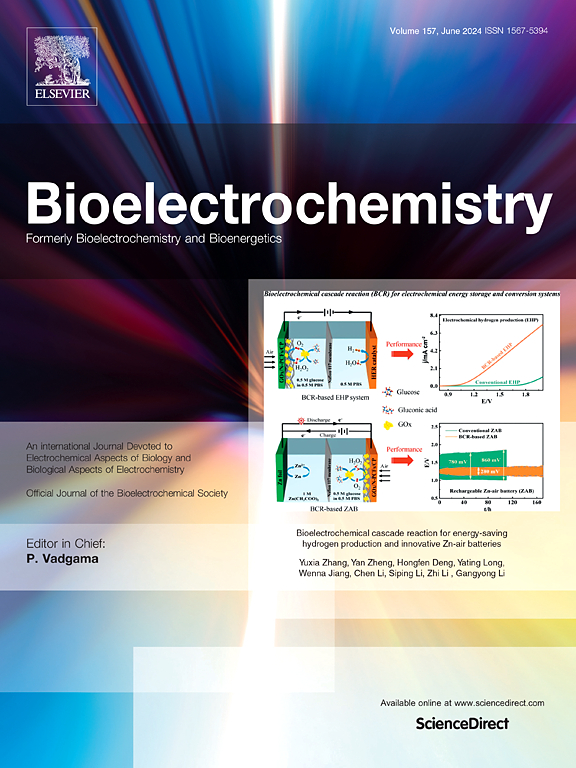The insular cortex-nucleus tractus solitarius glutamatergic pathway involved in acute stress-induced gastric mucosal damage in rats
IF 3.6
2区 医学
Q1 NEUROSCIENCES
引用次数: 0
Abstract
Previous studies have shown that acute stress-induced gastric mucosal damage is linked to excessive activation of parasympathetic nervous system. The Insular Cortex (IC), the higher centers of the parasympathetic nervous system, serves as both the integration site of gastric sensory information and play a crucial role in the regulation of gastric function. However, whether the IC is involved in Restraint water-immersion stress (RWIS)-induced gastric mucosal damage has not been reported. In this study, we examined the expression of neuronal c-Fos, PSD95 and SYN-1 protein expression in IC during RWIS by immunofluorescence and western blot techniques, as well as assessed IC blood oxygenation level dependant (BOLD) through functional MRI. Chemical genetics techniques specifically modulate the activity of IC glutamatergic neurons and IC-nucleus tractus solitary (NTS) glutamatergic pathway to elucidate their contributions to RWIS-induced gastric mucosal damage. The results showed that the expression of c-Fos, PSD95, and SYN-1 protein in IC increased significantly after RWIS, along with a noticeable enhancement in fMRI signal intensity. Furthermore, inhibiting IC glutamatergic neurons and the IC-NTS glutamatergic neural pathway resulted in a significant reduction in gastric mucosal damage, an increase in the expression of Occludin, Claudin-1, and PCNA in the gastric wall, while the expression of nNOS decreased and CHAT increased. These findings suggest that during RWIS, IC glutaminergic neurons are activated, promoting stress-induced gastric mucosal damage through the IC-NTS-vagal nerve pathway.
大鼠脑岛皮层-孤束核谷氨酸能通路参与急性应激性胃粘膜损伤
以往的研究表明,急性应激性胃黏膜损伤与副交感神经系统过度激活有关。岛叶皮层(Insular Cortex, IC)是副交感神经系统的高级中枢,既是胃感觉信息的整合部位,又在胃功能的调节中起着至关重要的作用。然而,IC是否参与克制水浸应激(RWIS)诱导的胃粘膜损伤尚未见报道。在本研究中,我们通过免疫荧光和western blot技术检测了RWIS期间IC中神经元c-Fos、PSD95和SYN-1蛋白的表达,并通过功能MRI评估了IC血氧水平依赖性(BOLD)。化学遗传学技术特异性调节IC谷氨酸能神经元和IC核孤立束(NTS)谷氨酸能通路的活性,以阐明它们在rwi诱导的胃粘膜损伤中的作用。结果显示,RWIS后IC中c-Fos、PSD95、SYN-1蛋白的表达显著升高,fMRI信号强度明显增强。此外,抑制IC谷氨酸能神经元和IC- nts谷氨酸能神经通路导致胃粘膜损伤明显减轻,胃壁Occludin、Claudin-1和PCNA表达增加,nNOS表达减少,CHAT表达增加。这些结果表明,在RWIS期间,IC谷氨酰胺能神经元被激活,通过IC- nts -迷走神经通路促进应激诱导的胃粘膜损伤。
本文章由计算机程序翻译,如有差异,请以英文原文为准。
求助全文
约1分钟内获得全文
求助全文
来源期刊

Neurobiology of Stress
Biochemistry, Genetics and Molecular Biology-Biochemistry
CiteScore
9.40
自引率
4.00%
发文量
74
审稿时长
48 days
期刊介绍:
Neurobiology of Stress is a multidisciplinary journal for the publication of original research and review articles on basic, translational and clinical research into stress and related disorders. It will focus on the impact of stress on the brain from cellular to behavioral functions and stress-related neuropsychiatric disorders (such as depression, trauma and anxiety). The translation of basic research findings into real-world applications will be a key aim of the journal.
Basic, translational and clinical research on the following topics as they relate to stress will be covered:
Molecular substrates and cell signaling,
Genetics and epigenetics,
Stress circuitry,
Structural and physiological plasticity,
Developmental Aspects,
Laboratory models of stress,
Neuroinflammation and pathology,
Memory and Cognition,
Motivational Processes,
Fear and Anxiety,
Stress-related neuropsychiatric disorders (including depression, PTSD, substance abuse),
Neuropsychopharmacology.
 求助内容:
求助内容: 应助结果提醒方式:
应助结果提醒方式:


